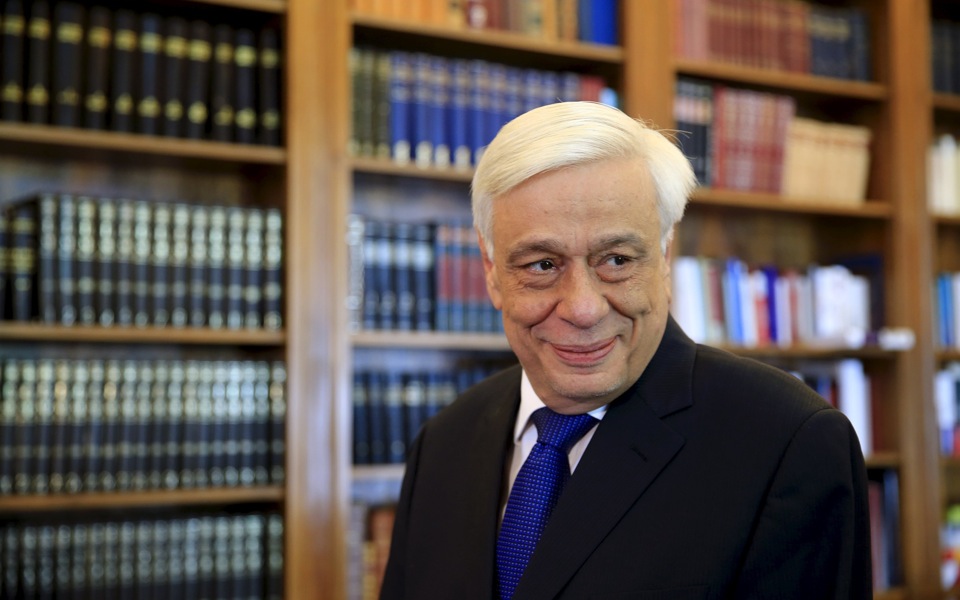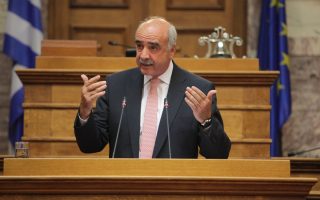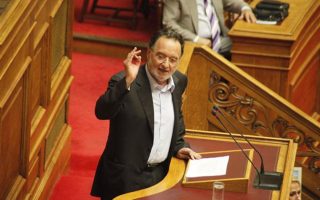Greece moves closer to formal announcement of election date

Greece came one step closer Thursday to an early election as the head of a breakaway left-wing party returned his mandate to form a government after failing to find willing coalition partners.
Former energy minister Panagiotis Lafazanis, who formed the new Popular Unity party last week after splitting from Prime Minister Alexis Tsipras' radical-left SYRIZA party, returned the mandate Thursday after exhausting the three-day time limit.
Greek President Prokopis Pavlopoulos will now either convene a meeting of all party leaders in a last-ditch bid to find consensus for a coalition government, or declare a caretaker government and announce the election date.
He has indicated he might skip the party leader's meeting, which would mean an announcement by Thursday night and the election date being set for Sept. 20.
However, several opposition parties still want the all-party meeting. Lafazanis said not calling the meeting would be unconstitutional, and said the vote should not be held before Sept. 27.
The election comes just eight months after Tsipras won a January election on promises of repealing the stringent austerity measures that Greeces previous governments had to impose in return for getting two desperately needed international bailouts.
Tsipras resigned and called an early election last week after his coalition government lost its parliamentary majority due to a rebellion by Syriza hardliners furious at his signing of a third bailout for Greece that demands even harsher spending cuts and tax hikes than those he had vowed to abolish. The deal was approved with support from opposition parties.
The 41-year-old prime minister has argued he was left with no choice but to accept European creditors' demands, in order to avoid Greece defaulting on its debts and being forced out of the euro currency the country shares with another 18 European nations.
Greece has relied on funds from two bailouts by other European countries and the International Monetary Fund totaling nearly 240 billion euros since 2010.
The second bailout expired earlier this year, and Tsipras insisted he could negotiate a better deal for his country. But the talks with creditors floundered and eventually collapsed in June, with Tsipras calling a referendum and urging Greeks to vote against creditor demands. They overwhelmingly did so, but the prime minister eventually signed up to even stricter demands in return for a third bailout worth 86 billion euros ($97 billion).
Despite his about-face on policies, Tsipras is expected to win the next election although it's unclear whether he will secure enough parliamentary seats to govern alone. He has ruled out a coalition with any of the centrist opposition parties: center-right New Democracy, the socialist PASOK party or the small centrist To Potami party.
Unless other smaller parties manage to enter Parliament, that would leave his current coalition partner, the nationalist Independent Greeks.
It is unlikely he would form a government with Popular Unity, formed by Syriza dissenters, the Nazi-inspired Golden Dawn, whose leader and lawmakers still face criminal charges, or the communist KKE party.
[AP]





